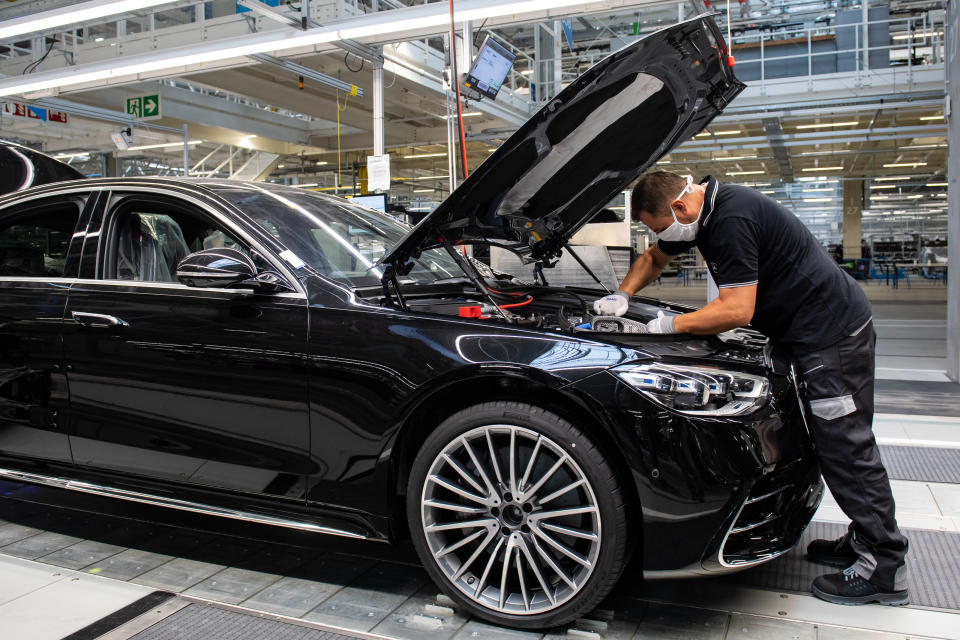Automotive industry no longer growth engine of German economy

Germany’s mighty car industry, which has been hit particularly hard by the coronavirus pandemic, is no longer the engine driving the country’s economy.
“For the first time in a decade, the auto industry is facing noticeable personnel adjustments and will initially fail as a growth engine for Germany,” says a new study by the German Economic Institute (IW), reported exclusively by Handelsblatt.
The results of the IW study are likely to hang over the meeting on Tuesday this week between the German government and the heads of the countries powerful car companies and automotive suppliers.
Already before the global COVID-19 pandemic hit, the automotive industry was struggling with overcapacity, as well as the need to invest billions to switch to electrification, and get their fleet emissions down in the face of tough new EU emissions standards.
READ MORE: German car industry warns of job losses due to ‘unprecedented slump’
Then coronavirus brought production to a halt this Spring, and lockdowns and job insecurity caused demand to crater. All of Germany’s big auto companies saw sales tank in the first half of the year.
"The industry is now facing a demand shock from which it is only slowly recovering," the study notes.
Hildegard Müller, president of the German Automotive Industry Association, warned in July that even Germany’s furlough scheme, which sees the government pay 60% of workers’ salaries so employers don’t have to let them go, will no be enough to mass industry layoffs.
Smaller suppliers are especially vulnerable, according to the IW. While big car corporations have the power to retool and switch to the production of electric vehicles, these small companies, which make parts for internal-combustion-engine cars, don’t have that option.
READ MORE: German economy shrank by 9.7% in second quarter as pandemic peaked
The German economic institute notes in its 45-page report that the car industry is still central to the country’s economy, representing 9.8% gross added value. It directly employs around 800.000 people, rising to a total of 936,000 if one includes supplier companies, from electrical engineering, to metal production.
While the German government agreed on buyer-discounts for clean-energy cars as part of its stimulus package, it decided not to support a cash-for-clunkers scheme, or other buyer incentives for fossil-fuel engines.
READ MORE: Diesel cars on the way out in their homeland Germany

 Yahoo Sports
Yahoo Sports 